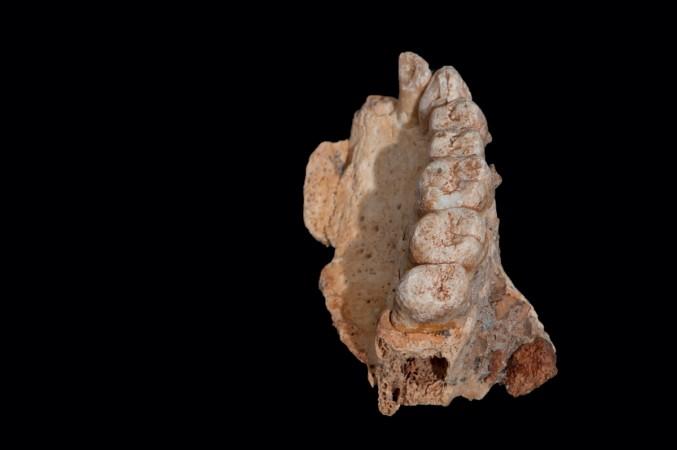A fossil discovery in a cave in Israel provides evidence that the oldest-known homo sapiens left Africa, where our species is thought to have originated, far earlier than scientists previously thought.
On Thursday, researchers revealed that they discovered a partial jawbone bearing seven teeth in Israel. According to the researchers, the fossil is estimated to date back to 177,000 to 194,000 years, making it the oldest fossil of modern human discovered outside Africa.
Until now, it was believed that modern humans first left from Africa to Europe some 60,000 years ago, but several recent findings, including a trove of 100,000-year-old human teeth in China, has led scientists to rethink that our ancestors left Africa earlier than previously believed.

The fossil of the partial jawbone discovered is of a young adult (the sex of the person is still not clear). It came from Misliya Cave on Mount Carmel, a coastal mountain range in northern Israel. The researchers also discovered blades and other stone tools.
"This is an exciting discovery that confirms other suggestions of an earlier migration out of Africa," paleoanthropologist Rolf Quam of Binghamton University in New York, a co-author of the study published in the journal Science, said, according to Reuters.
"Now we finally have fossil evidence of this migration, in addition to inferences drawn from ancient DNA studies and archaeological sites," Quam said.
Tel Aviv University paleoanthropologist Israel Hershkovitz, who led the study, said Misliya fossil discovery reveals that modern humans left Africa not 100,000 years ago, but 200,000 years ago.

"In other words, if modern humans started travelling out of Africa some 200,000 years ago, it follows that they must have originated in Africa at least 300,000-500,000 years ago," he explained.
Until now, the oldest remains of Homo sapiens found outside Africa came from two sites in Israel – Skhul and Qafzeh – and they dated to 90,000-120,000 years ago.
"Our research makes sense of many recent anthropological and genetic finds. About a year ago, scientists reported finding the remains of modern humans in China dating to about 80,000-100,000 years ago. This suggested that their migration occurred earlier than previously thought, but until our discovery at Misliya, we could not explain it," Hershkovitz said.
"Numerous different pieces of the puzzle -- the occurrence of the earliest modern human in Misliya, evidence of genetic mixture between Neanderthals and humans, modern humans in China -- now fall into place," he added.

















